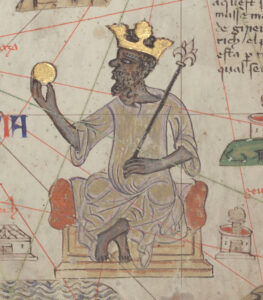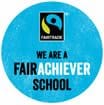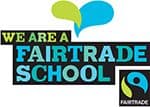S2 History
Course Overview
Welcome to S2 History!
Throughout the year, students will undertake the study of two discrete historical units:
The Cold War (August – December)
During this study unit, students will investigate a variety of enquiry questions such as:
- What was the Cold War? Why was it considered ‘Cold’?
- What is the difference between Communism and Capitalism and how did this play into the Cold War?
- How did the Cold War start? Who was involved and why?
- What is the MAD theory? How did the MAD theory impact on country’s relationships during the Cold War?
- What happened during the Cuban Missile Crisis? How was the crisis resolved?
- What was the Space Race? Who ‘won’ the Space Race?
- What happened to Germany at the end of the Second World War? How did this contribute to growing tensions between different Cold War countries?
African Kingdoms + Atlantic Slavery (January – April)

As a part of this study unit, students will investigate the following issues:
- The Danger of ‘The Single Story of African History’ https://www.ted.com/talks/chimamanda_ngozi_adichie_the_danger_of_a_single_story/c
- Myth Busters: Using a range of historical sources to challenge existing ideas about African History
- The Significance of Mansa Musa – the richest man the world has ever seen
- The Atlantic Slave Trade – Causes, Impacts & Experiences
Interdisciplinary China Unit (April-May) S2 pupils will end the year by completing an interdisciplinary study of China. In History, they will explore the controversial legacy of the First Emperor of China.
Methodology
A variety of active learning and teaching strategies will be involved, from teacher-led explanation and discussion to individual work; paired work; group work; researching and presenting information; interpretation and analysis of various sources of information; self and peer evaluation of work produced.
iPads are used thoughtfully to enhance learning and teaching.
Assessment
We use a variety of assessment approaches to allow learners to demonstrate their knowledge and understanding, skills, attributes and capabilities in each subject:
- Observing day-to-day learning within the classroom.
- Coursework, including end of unit tests.
- Project work where pupils lead their learning.
- Teams’ submissions including homework and quizzes.
- Peer and self-evaluation.
Assessment is an integral part of our teaching and learning process and we recognise that regular positive and constructive feedback is very important to help pupils progress. As a result, learners receive high-quality feedback to support their understanding of their progress in learning and what they need to do to improve.
In S2 History, assessments will often include:
- Historical Source Analysis Skills Questions (Comparing, analysing & evaluating)
- End of Unit Assessments
- Lead Your Own Learning: African Kingdoms Research Project
Recording & Reporting
All pupil assessments are routinely graded and recorded by the teacher and the results are stored centrally, these results are used by staff to track the progress of the individuals and ensure that their needs are being met. Pupils also review their own attainment and are encourage to identify ways to improve their learning. Staff report formally to parents as per the school calendar.






